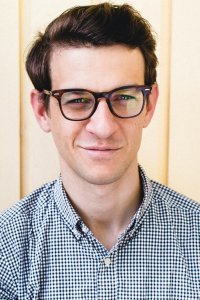Stefan Solomon

Stefan Solomon is Senior Lecturer in Media Studies at Macquarie University. He is the author of William Faulkner in Hollywood: Screenwriting for the Studios (University of Georgia Press, 2017), co-editor with Alix Beeston of Incomplete: The Feminist Possibilities of the Unfinished Film (University of California Press, 2023) and co-editor with Lúcia Nagib of The Moving Form of Film: Historicising the Medium through Other Media (Oxford University Press, 2023).
Like each of the Iranian-British director Babak Jalali’s films to date, Fremont deals with the felt effects of geographical dislocation. Specifically, it follows the story of Donya (Anaita Wali Zada), an Afghan refugee and former translator for the US military. Settling in Fremont, California, she lives alone and works at a fortune cookie factory, trying to adapt to new surroundings while workin ... (read more)
While it is set in the remote bushland of Victoria’s Macedon Ranges, The Rooster is hardly a quiet or peaceful film. The cacophonic soundtrack opens with a chorus of crickets accompanying the title credits and a haunting first image. We soon hear recurring, ironic snippets of Verdi, Bach, Vivaldi, and Puccini on a car radio, jazz interludes from Miles Davis and Pharaoh Sanders blasting from a se ... (read more)
According to the Palestinian-American literary critic Edward Said, when some artists, musicians, and writers enter the last period of their lives, the sense of their own ending (whether from old age or ill health) occasions a change in their craft, a kind of ‘new idiom’ that he calls ‘late style’. While we might intuitively tend to think of old age bringing a sense of ‘reconciliation and ... (read more)
Over the course of the past five years, the Norwegian-born, Los Angeles-based filmmaker Kristoffer Borgli has acted in many of the films he has directed, more often than not playing a thinly veiled version of himself. In shorts such as A Place We Call Reality (2018), The Loser (2019), and Willem Dafoe (2023) – all available online – Borgli portrays, respectively: a director who has lost his wa ... (read more)
In three films by Icelandic director Hlynur Pálmason, there is a moment of rupture in which the narrative is held up and we see instead a montage of various characters standing still and looking directly at the camera – an example of what has been called a planimetric shot. This particular type of shot, in which the camera is positioned directly perpendicular to its subject, appears to flatten ... (read more)
Given how commonplace it is in today’s economy, where are our great films about solar power? I’m not thinking here of those countless disaster and science fiction films that feature a dying sun or volatile solar winds as catalysts for global catastrophe, but simply movies that would give life to the otherwise unremarkable solar panels tilted skyward on roofs and farms around the world. In rece ... (read more)
In a documentary landscape populated by all manner of personalities, styles, and political commitments, there is still something singular about the verbatim approach. While re-enactments in documentaries can often overdramatise a sequence of events, or can play fast and loose with history, verbatim filmmaking involves the exact reproduction of words spoken or written down at some point in the past ... (read more)
When a film is created by an equally renowned cast and crew, it can be difficult to identify the most notable contributors. In praising or blaming, we often focus on the director or the actors. In this instance, however, it is the screenwriter’s efforts that command our interest and ultimately reorient what could have been a straightforward narrative.
It’s perhaps no surprise that Cormac McCa ... (read more)
